6. Call Me By Your Name (2017) – Luca Guadagnino
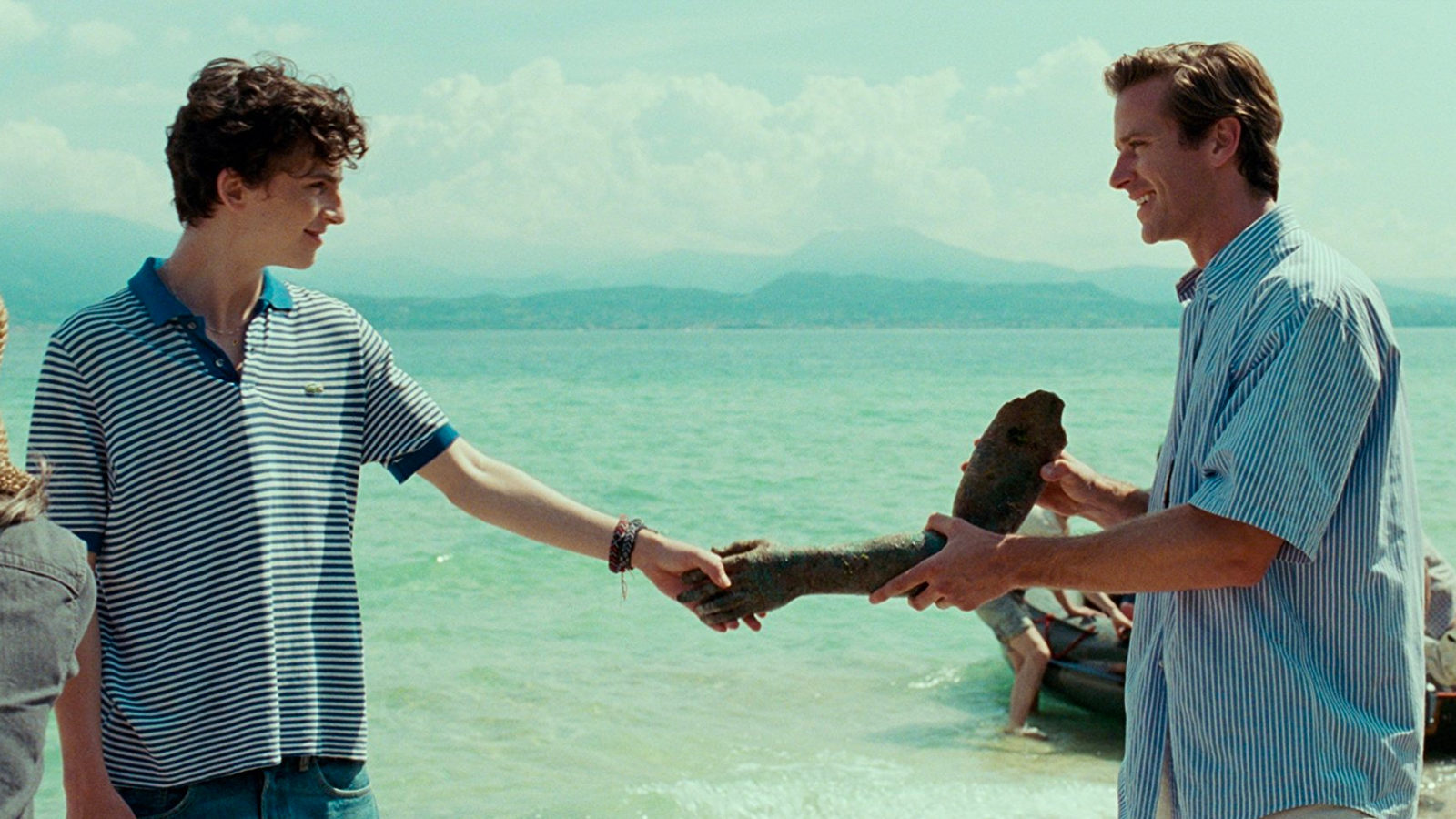
One of the most beloved films of recent years, fans and critics alike were enamoured by Luca Guadagnino’s adaptation of André Aciman’s coming-of-age novel Call Me By Your Name, set in 1980s Italy. The movie catapulted Timothée Chalamet to stardom and saw Armie Hammer reveal unexpected depths in his performance.
While at various times the characters speak French, Italian and German, English is the film’s main language and the only one fully shared by Elio (Chalamet) and Oliver (Hammer) as they fall in love over the course of a scorching summer. No stranger to shooting in his homeland, Guadagnino shows Italy at its most romantic here, as the audience experiences the joys of the country’s food, landscapes and culture for the first time through Oliver’s eyes, a soundtrack of beautiful songs by Sufjan Stevens and a heavy dose of nostalgic eighties pop playing in the background.
The characters’ backgrounds drive the multilingual nature of the film. As Americans abroad, scholars and descendants of émigrés, they have multiple means of expressing themselves, but still struggle to do so at times. In one scene, Elio’s mother (Amira Casar) reads a German story to her family in which a knight asks: “Is it better to speak or to die?” unaware that Elio is grappling with his unexpressed feelings for Oliver.
The young men have several circumspect conversations, dancing around each other, as they try to address what’s happening between them before reaching a level of wordless understanding that so many crave in their relationships with others.
7. Elle (2016) – Paul Verhoeven
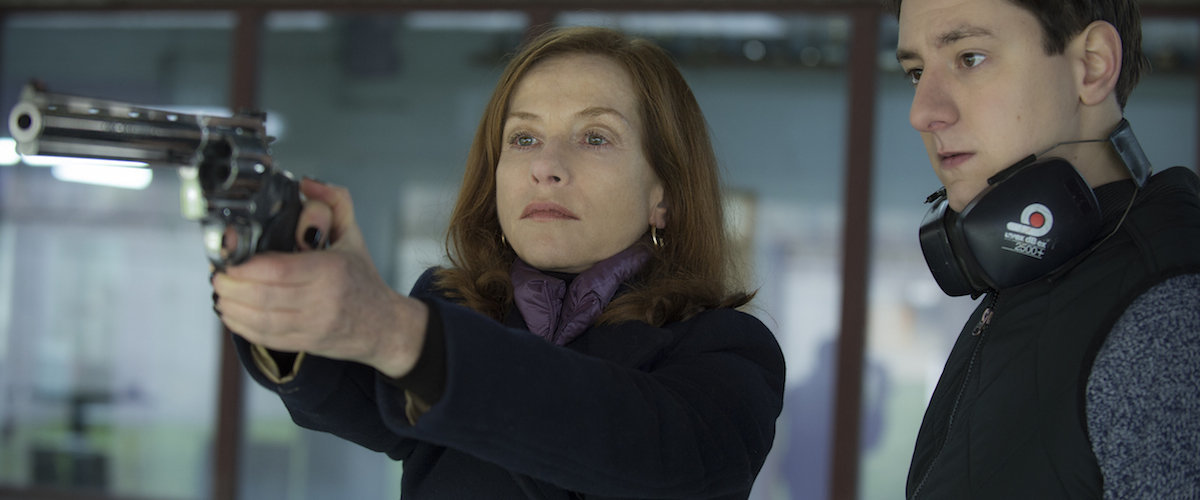
The year is 2016. It has been a decade since Paul Verhoeven’s last feature – the well-received World War II drama Black Book – when the Dutch director’s French-language debut is released.
Elle is a thriller that revolves around Michèle, a middle-aged woman who is violently raped in her home. Wary of police as a result of childhood trauma, Michèle chooses not to report the attack and continues with her life as normal. She becomes increasingly suspicious of the men in her life as the film progresses but takes few steps to protect herself, even after discovering the rapist’s identity. Instead, Michèle and her attacker begin a complex relationship that blurs the line between assault and consent.
Verhoeven learned French in order to communicate with his cast and crew after initial plans to make the film in the United States fell through. The director had approached several actresses, including Nicole Kidman and Charlize Theron, to play Michèle but could not persuade them due to the subject matter. French actress Isabelle Huppert, who had previously been interested in adapting the book on which the film is based, then signed on to star as Michèle.
Widely considered France’s greatest working actress, Huppert was lauded still more for her performance, with some critics ranking it among the finest of her career. She won numerous awards, including the Golden Globe and César for Best Actress and received an Oscar nomination. The film itself opened to huge acclaim at the Cannes Film Festival, with praise heaped upon Verhoeven’s triumphant return.
However, the film unsurprisingly met with some objection. Several critics questioned whether rape was a suitable subject for a film that blends thriller elements with black comedy and disputed Huppert and Verhoeven’s claims that the story was one of female empowerment.
8. Far From the Madding Crowd (2015) – Thomas Vinterberg
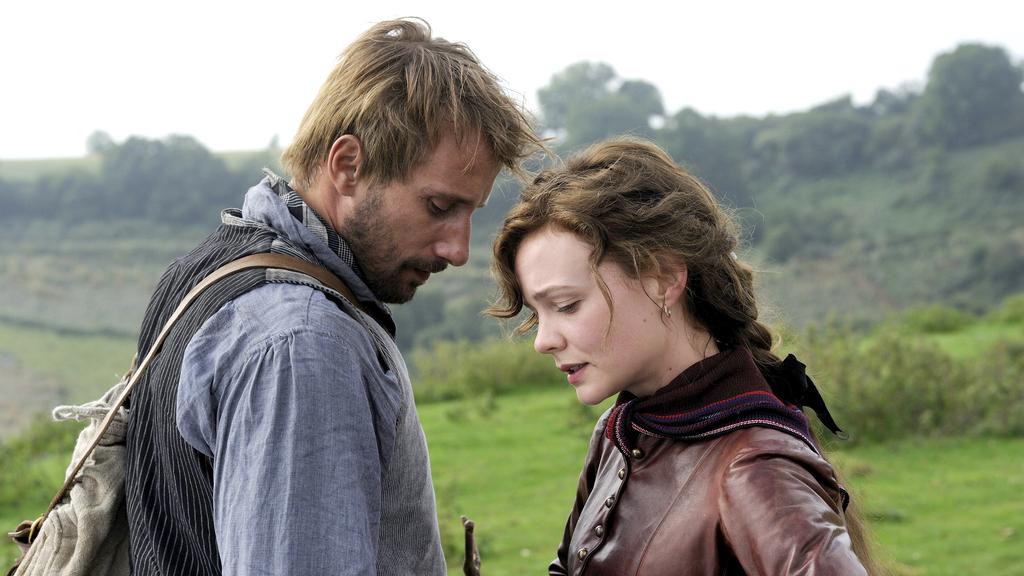
After a couple of flops with It’s All About Love (2003) and Dear Wendy (2005), it was third time lucky for Thomas Vinterberg in his attempts to make a successful film in English. Hot on the heels of his masterful thriller The Hunt (2012), the Danish director travelled to the United Kingdom to adapt Thomas Hardy’s celebrated novel Far from the Madding Crowd.
Using the cornerstones of the Dogme 95 movement he co-founded with countryman Lars von Trier, Vinterberg focused on the acting, characters and themes of the story, filming the English countryside to luscious effect.
The story concerns Bathsheba Everdene (Carey Mulligan), an independent young woman working on her aunt’s farm. Bathsheba refuses a proposal from soulful farmer Gabriel Oak (Matthias Schoenaerts) but he nonetheless becomes a constant presence in her life and a loyal friend as Bathsheba navigates the responsibilities of unexpectedly inheriting an estate, falls in love with an irresponsible man and manages the attentions of a neighbour. Rather than a love triangle, it’s a bit of a love square with an ending to melt even the hardest of hearts.
Despite having been adapted several times, including a much-loved 1967 version with Julie Christie, the story feels fresh and lively under Vinterberg’s direction, with Mulligan luminous throughout her performance. Classic British novels rarely fall into the hands of foreigners for adaptations but, as was the case with Ang Lee’s Sense and Sensibility (1995), Vinterberg’s outsider status brings renewed vitality to the period drama genre.
9. Amour (2012) – Michael Haneke
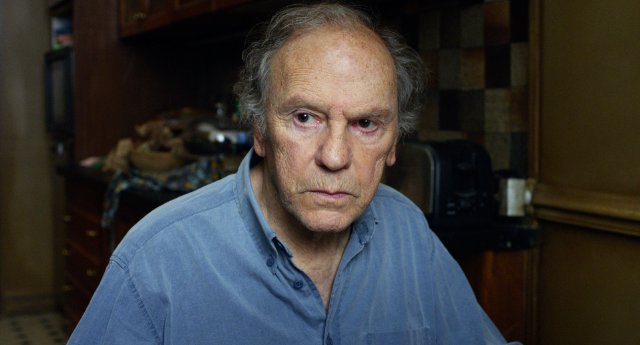
Multilingual master filmmaker Michael Haneke is no stranger to stepping into other cultures, having directed films in French and English, as well as his native German. In 2012, the Austrian auteur turned his lens on a group not frequently given much attention by filmmakers: the elderly.
Haneke’s films can be brutal and uncompromising and Amour is no exception. It follows an elderly couple Anne (Emmanuelle Riva) and Georges (Jean-Louis Trintignant) in the aftermath of Anne suffering a stroke. She makes Georges promise her he will not put her into care and so Georges begins acting as her carer. With much of the action taking place in the couple’s apartment, the sense of isolation and inability to escape – in Anne’s case, from her body, and in Georges’, from his responsibilities – is heightened to an almost unbearable degree.
The film is completely uncompromising in its portrayal of growing old, the realities of caring for a loved one and the strain it can place on the carer. It is a truly devastating love story that, once seen, is never forgotten, even if you can’t quite bring yourself to rewatch it. The story is based on the suicide of Haneke’s 90-year-old aunt and was written over the course of 20 years.
The director said he wrote the script specifically for Trintignant, who was coaxed back to acting after 14 years to star in the film alongside fellow 1960s star Riva. The two’s performances were widely praised, with Riva winning a BAFTA and César for Best Actress and, at 85, becoming the oldest person to receive an Oscar nomination for Best Actress. The film also scooped the Palme d’Or at Cannes.
10. Stoker (2013) – Park Chan-wook
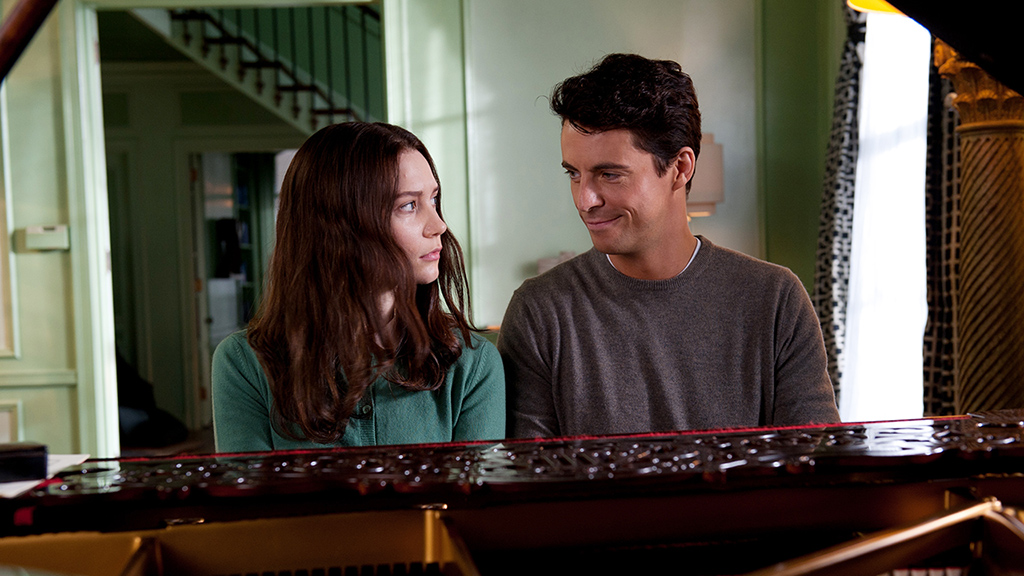
The years 2013-2017 saw some of the biggest names in Korean filmmaking head abroad after being blacklisted by the government of disgraced ex-president Park Geun-hye. Almost 10,000 names were reportedly on the list, which included directors, poets and painters. The individuals were barred from receiving state funding due to their perceived lack of support for the government.
Park Chan-wook, a director lauded internationally for his Vengeance Trilogy, was one notable casualty. He teamed up with Fox Searchlight in the US to make Stoker, a creepy family drama centred around 18-year-old India (Mia Wasikowska) whose status quo is shattered when her father dies in a car accident. The arrival of the mysterious Uncle Charlie (Matthew Goode) adds to India’s sense of unease, as does the increasing closeness between Charlie and her mother (Nicole Kidman).
While he does speak English, Park chose to work through an interpreter on set and the resulting film is a visual delight with exquisite framing and dreamlike imagery including a memorable shot of hair melting into swaying cornfields. The type of stylised violence audiences have come to expect from Park is on full display here, but the film was not as warmly received as his Korean works upon release.
Park continued to work on US productions in 2013, assisting friend and colleague Bong Joon-ho with his English-debut Snowpiercer before returning to Korea and to form with The Handmaiden in 2016.
With former culture minister Cho Yoon-sun sentenced to prison time over the blacklisting scandal and a new government in power, Korean directors can work freely again. In 2020, the country’s cinema reached new heights with Bong’s Parasite becoming the first film not in English to win the Oscar for Best Picture. Bong had been among those once blacklisted in Korea.
For his part, Park has since returned to English filmmaking on his own terms, shooting a six-part adaptation of John Le Carré’s The Little Drummer Girl for the BBC in 2018. The series followed an aspiring actress (Florence Pugh) as she was recruited by Mossad to infiltrate a Palestinian group.